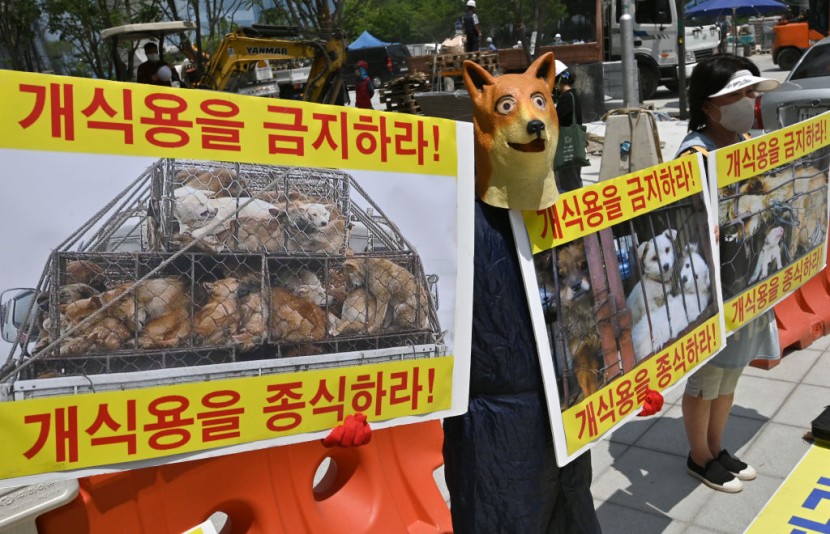South Korea has unveiled plans to phase out the centuries-old dog meat industry by 2027, aiming to end this divisive practice that has garnered international attention and criticism.
The move comes after a meeting among members of the ruling People Power Party, the agricultural ministry, and animal rights groups, where they discussed the need for a special act to ban the dog meat trade, as per Reuters via Yahoo News.
South Korea Gains Momentum in Banning Dog Meat

Lawmakers and government officials are pushing for the passage of this act by the end of the year, followed by a three-year phase-out period. Assemblymember Yu Eui-dong emphasized the importance of enacting this special law to resolve the social conflicts and controversies surrounding dog consumption.
He highlighted the evolving perception of dogs in South Korean society, where they are increasingly seen as family members and friends rather than possessions.
If the legislation is passed, it will prohibit the breeding, slaughtering, distribution, and sale of dogs for food. During the phase-out period, registered dog farm owners and industry participants will receive compensation to support their transition to alternative fields.
The momentum to outlaw dog meat in South Korea has been growing, particularly among the younger generation, as the practice falls out of favor. Additionally, international rights activists have criticized the industry, putting pressure on the government to take action, according to The Washington Post.
Read Also : Families Retrieve Thousands of Buried Bodies With Bare Hands in Gaza 'Graveyard' Streets
South Korea's Path to Banning Dog Meat by 2027
The ruling People Power Party has laid out a timetable for addressing the issue, aiming to enact the Special Act to ban dog meat within the year. If passed, the full ban would take effect in 2027, allowing time for the industry to transition.
Under the proposed law, dog farms, slaughterhouses, traders, and restaurants will be required to submit phase-out plans to local authorities. Compensation will be provided to legally registered businesses that comply with the program.
The support for ending the dog meat industry extends to the highest levels of government, with President Yoon Suk Yeol and First Lady Kim Keon Hee known for their love of animals.
Kim has publicly endorsed legislation to ban dog meat consumption, emphasizing the coexistence of humans and pets as friends. The South Korean government's proactive steps to address this issue reflect a broader international movement to protect the rights of dogs.
Organizations like the World Dog Alliance have played a crucial role in raising awareness and advocating for the end of the dog meat trade. Since 2014, the World Dog Alliance has worked to shed light on the grim reality of the dog meat trade in South Korea and mobilize public support.
Efforts, including petitions and symposiums, have contributed to significant progress, such as the closure of Moran Market, the largest dog meat market in the country. The South Korean government's commitment to ending the dog meat industry represents a significant step toward enhancing the country's international image and aligning with changing societal attitudes toward animals, Big News Network reported.








